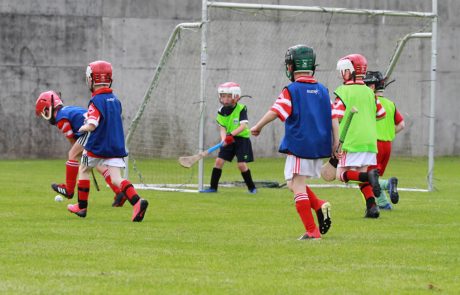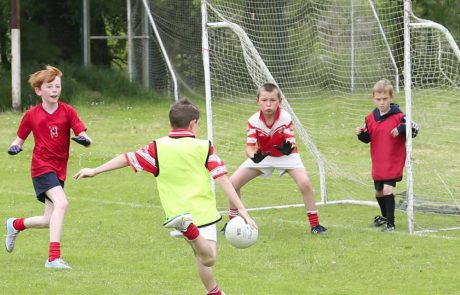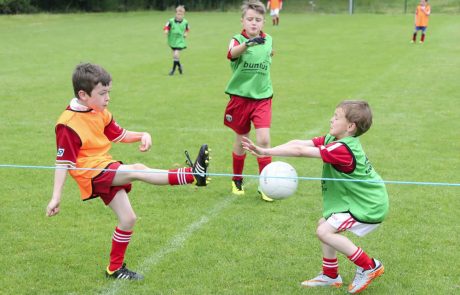About Club na nÓg
Our Club na nOg involves Hurling, Camogie and Football training for young players, with a focus on Fun and Friendship. New members are always welcome to join at any time.
Training takes place once a week, on Saturdays for those born in 2020 and 2019. For those born in 2018 and prior, we also take part in Go Games throughout the year, along with Parish Leagues, Trips and Tournaments.
For children born in 2021, Club Beag will be back once a month starting in April. This is a great chance to meet people, and to get to know the Club.
Please get in touch for more information:
Club Beag (Children born in 2021) Mairead Rowley 087-4170690
Club na nOg Boys Chairman Mick O’Mahony on 086-3969224
Club na nOg Girls Johanne Kiely 087-917279
If any parent is interested in becoming a coach, mentor or volunteer with the club, please contact any of the above.
Why do children take part in sport?
There are many reasons that children take part in sport,
but research has shown that children primarily participate to:
Children in Sport
For too long the practice in sport has been to identify and cultivate the talented players and elite teams at younger and younger ages. There is the tendency to nurture the perceived best and neglect the rest. This has contributed to adult training regimes and playing conditions being imposed onto young players. Training and competition is geared to outcome and winning, and not for the process of development.
For coaches of kids, there must be a balance between the need to win games and trophies versus the need to develop players and recognise the importance of fair play – provide full participation within an environment where players are encouraged to achieve their full potential. If you consider the reasons that children participate in sport, and the reasons that we as adults want them to participate in sport, you can see that there is a lot of common ground for coaches to work in
Why should children take part in sport?
It may be obvious that children play to enjoy themselves and have fun, but there are many more reasons why you as a parent or coach should encourage children to participate:
Increased confidence – playing sport will provide each participant with confidence, and allow them to develop a real sense of achievement
Becoming part of a team - children like to feel as though they are part of a team or group. It also challenges them to work as part of a group and to think of others
Improved skills – participating in sport helps children develop a range of skills including balance, coordination and agility
Children that participate in sports are less likely to be overweight and suffer health problems
When children do not experience these feelings, they drop out from sport. Some will drop out in favour of other activities where they feel that these needs are being met, while others will simply drop out of sporting activities altogether. It is the role of the coach to create the environment for children to experience these.
How are children different from adults?
Children are physically developing from early childhood to late adolescence. This means they have different capabilities for exercise and exercise affects them in different ways. For this reason training programs for children should not be just scaled down versions of adult training programs. There are many ways in which children differ from adults:
Technical
Children have limited co-ordination, agility and balance
Tactical
Children have poor positional awareness (we have all seen children playing where all players follow the ball – ‘beehive play’)
Team Play
Children play for themselves Children have limited communication skills
Physical
Children have limited strength Endurance – children have lots of energy but need frequent breaks Speed – their speed tends to be reactive. There is a window of opportunity to develop speed among children. Children have a poor response to heat and cold .
Psychological
– Children can lack confidence
– Children can be emotionally immature – moody/lose self control
– Children can be very choosy about friends and who they play with
– Children tend to lose concentration quickly or be easily led by others
– Children’s decision making ability is poor and slow
– Children may not know how to react to the different personalities they might face in a groupPlaying Facts
Children need numbers to learn, to benchmark their level against others
All children are individuals
Emphasis should be put on the child’s own progress, and not on comparing their achievements with those of others. This means that where possible individual instruction and challenges should be provided and a broad range of activities should be planned and presented.
Activities should develop to be of an increasingly complex nature and be challenging but ‘doable’. Where possible children of approximately the same skill levels should be grouped together for coaching. Also take care to note which children work well together, as disruptive children can make organising a coaching session very difficult.




